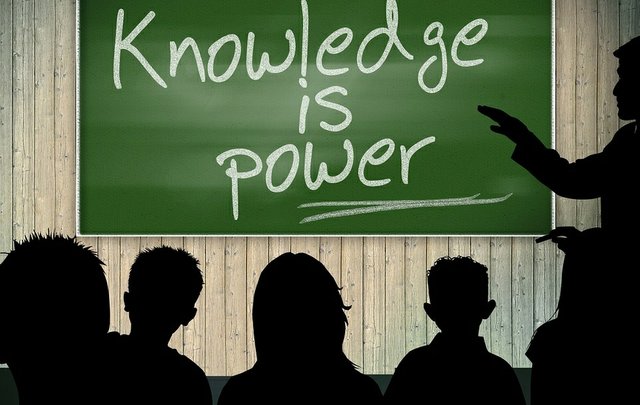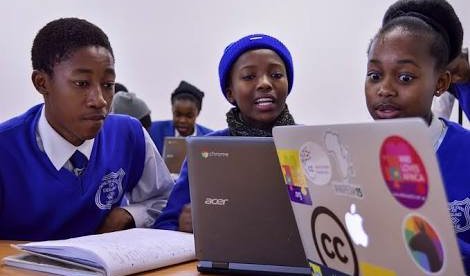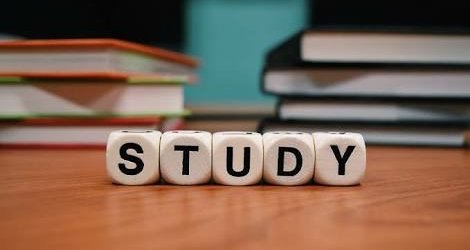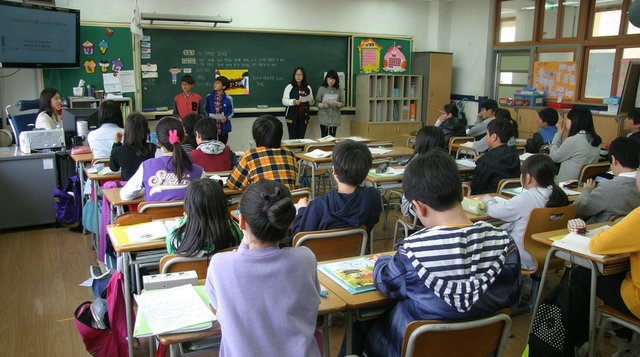In an attempt to discover the details of this topic, allow me to examine the concepts of training and education. Training and Education are both different facets of learning. At first, it may be difficult to tell the difference between them, especially in today’s school system, but there are major differences in training and education.
Adult Education Public domain: Pixabay
Their purpose, history, and methodology are all vastly different.
Now, let me try to discuss a little about the subject matter under these topics
Purpose of Education and Training
Training ‘“ is undertaken in the hopes of gaining a specific skill. Generally this skill will make you more employable. These skills can be manual: e.g. Plumbing, Carpentry, Weaving or mental: Computer Programming, Accounting and Marketing.
Education ‘“ is undertaken in the hopes of furthering your individual knowledge and developing your intellect. While a highly educated person is often more employable, education is not about getting a job.
History of Training and Education
Training was originally practiced through guilds. Youngsters would be apprenticed to a master baker or builder and work under him in order to learn his trade. This was considered the proper method of learning for the lower and middle classes.
If we take a closer look at the Nigerian context, we discover that most artisans still follow this guild like system of having apprentices who undergo training for a specific period and then have their 'freedom' ceremony.
Education ‘“ has its origins in the medieval university system. Young men from wealthy families would complete a course in theology or philosophy before studying his chosen profession. It was in later years that people from ordinary families were given the opportunity to be educated and it also led to the expansion of the courses available and those to teach them.
Methodology
Training ‘“ is usually done through specialized courses and textbooks. The learning can often be done by rote and textbooks are very prescriptive. While independent thinking at a micro level is encouraged, revolutionary innovation is often looked down on.
Training generally comes in a course; when the course is completed, the training is done.
Education ‘“ is a lifelong process. Most educational learning is done through real books, rather than textbooks. The learner is encouraged to think and write about what he is reading. Any point is open to discussion and the only right answers are those that can be found in the text.
African School Training Wikipedia common, CC BY SA 3.0
In today’s school systems, the line between education and training can be very fine indeed. Especially at the college level, many areas of mental training are being passed off as education. Programming, for instance, requires a difficult and specialized skill set and needs years of training. However, its end result is employment rather than self-improvement.
Before i continue, let me give you a quick recap on the differences between the two concepts:
- Education focuses on creating lifelong independent thinkers whereas training focuses on skills sought after by employers.
- Training has its roots in the guild system while education’s origins lie in universities.
- Training uses textbooks and prescriptive methods.
- In today’s universities highly specialized areas of training are being passed off as education.
"Learning" and "training" are often used interchangeably, but what are the differences between the two? Are there any?
Jay Cross, who is credited with coining the phrase ‘e-learning’, said: “If your sixteen year-old daughter told you that she was going to take a sex education course at high school, you might be pleased. What if she announced she was going to take part in some sex training at school?”
So the difference between education (learning) and training is not as negligible or irrelevant as may seem.
Education is all about learning the theory. Traditionally, an education may reinforce knowledge in which that you already have a foundation. For example, when you’re at school, you may already have command of the English language, but you still learn English.
Other subjects may be taught to you from scratch, but it is the theory that you learn. In Physics, you learn about splitting the atom, but you don’t do it. It is for this reason that the traditional professions like Accountancy, Law and Medicine require a period of further practical training after academic studies are complete.
That is where training differs; training gives you the skills to do something rather than just know about something. Training can be specific to your need, your vocation or your skills-gap. It is there for people who want to implement a new system, improve a specific ability or further their ability in something.
That’s not to say education has no place - lawyers must understand the principles of law before they learn to deploy it and a surgeon must have a detailed knowledge of anatomy before they pick up the scalpel. But what is it you’re looking for - that foundation upon which to build or the skills you want to develop.
I am not in a haste to make any comment or embark on a personal drift, it just appears to me that the suitability of whether you are trained or educated is basically relevant to the context where it is needed. I wish to emphasize this because a few years ago before the advent of digitalized innovations for skilled labour, it was generally looked down upon especially when an individual announced that he went to technical college for training.
This has changed drastically as social media and digital influence has almost made every craft, skill or job an office compatible concept, e.g. a furniture making company is an upgrade of a carpenters shop and the 21st century Carpenter is in need of a good education as well as intensive training in order to stand out and make an impact.
Conclusion
Let me conclude by telling us that there is a difference in a well trained and a well educated student but a great student needs an effective combination of the two concepts to stand out and be remembered for years to come.
Thank you for reading
REFERENCES FOR FURTHER READING
https://elearningindustry.com/education-and-training-what-is-the-difference
https://www.ansi.org/education_trainings/overview
https://nationalcareersservice.direct.gov.uk/job-profiles/education-and-training




Congratulations! This post has been upvoted from the communal account, @minnowsupport, by teemike from the Minnow Support Project. It's a witness project run by aggroed, ausbitbank, teamsteem, someguy123, neoxian, followbtcnews, and netuoso. The goal is to help Steemit grow by supporting Minnows. Please find us at the Peace, Abundance, and Liberty Network (PALnet) Discord Channel. It's a completely public and open space to all members of the Steemit community who voluntarily choose to be there.
If you would like to delegate to the Minnow Support Project you can do so by clicking on the following links: 50SP, 100SP, 250SP, 500SP, 1000SP, 5000SP.
Be sure to leave at least 50SP undelegated on your account.
Downvoting a post can decrease pending rewards and make it less visible. Common reasons:
Submit
Congratulations @fantasiplus!
Your post was mentioned in the Steemit Hit Parade for newcomers in the following category:
I also upvoted your post to increase its reward
If you like my work to promote newcomers and give them more visibility on Steemit, consider to vote for my witness!
Downvoting a post can decrease pending rewards and make it less visible. Common reasons:
Submit